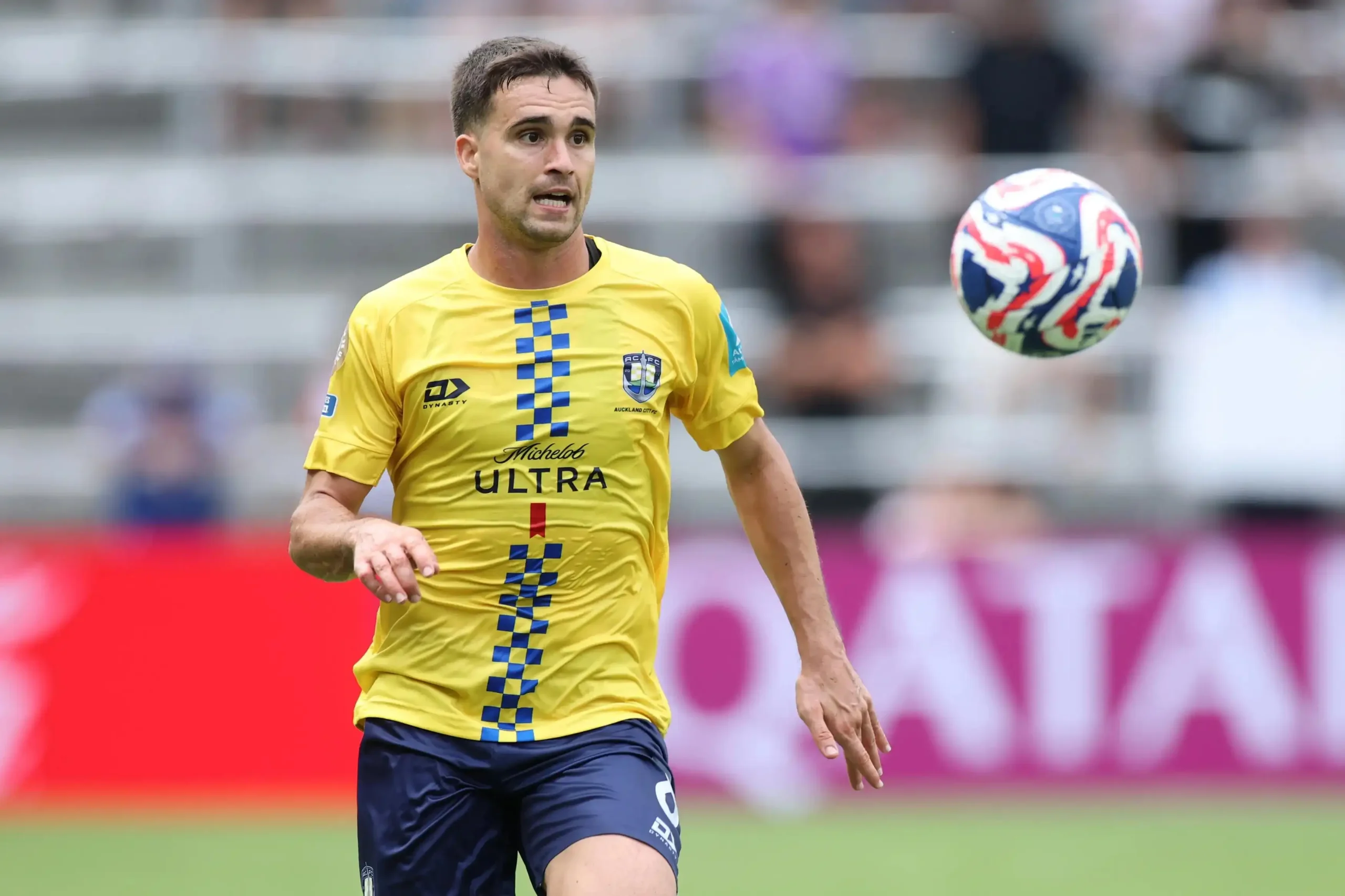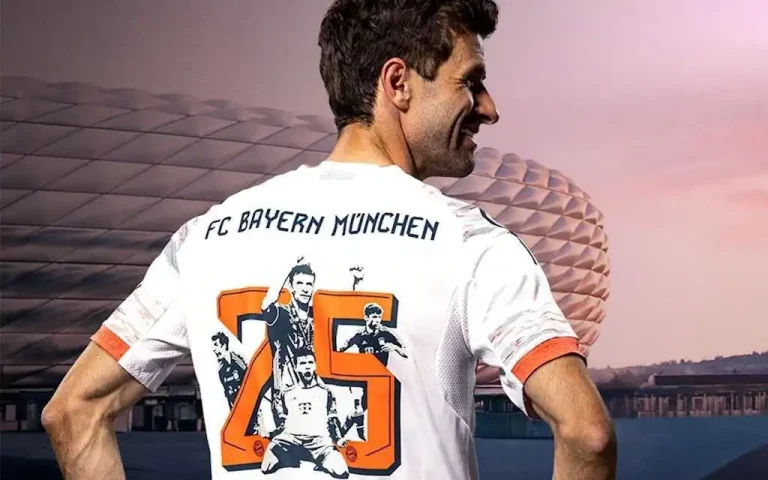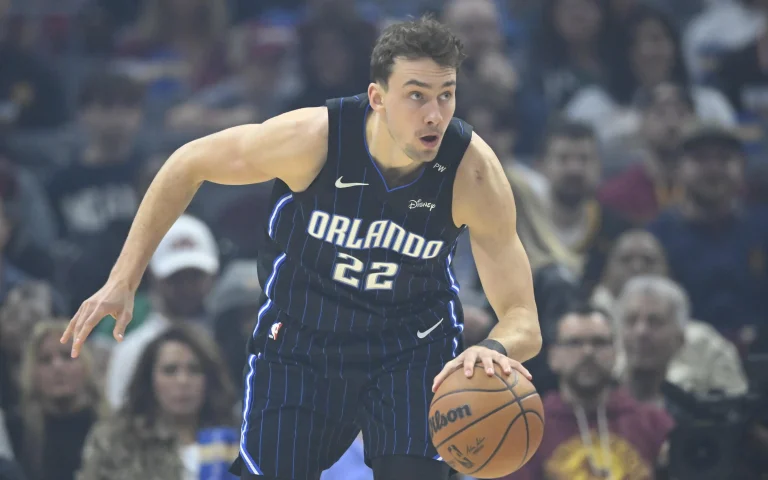It has been nearly two months since Auckland City FC took part in the FIFA Club World Cup 2025™ but the team’s outstanding draw with CA Boca Juniors remains as fresh in the memory as the day it took place.
Since that epic 1-1 result against the South American heavyweights, the semi-professional side have been fighting hard in the New Zealand Regional Leagues while itching to make their return to global competition in the upcoming FIFA Intercontinental Cup™ with a new sense of confidence.
Auckland City FC’s veteran midfielder Gerard Garriga sat down with FIFA to discuss the club’s performances in the USA, the reaction to the draw with Boca and taking valuable experience of playing against world-class teams into the FIFA Intercontinental Cup.
Gerard Garriga: It was tough at first. For all of us who were lucky enough to experience the Club World Cup, it was a dream come true. When it was time to return to reality, it was a shock. Just being here, having to go to work, playing on training grounds and in games that just didn’t feel the same…
It took us a while for us to get used to being back. We had been working, dreaming and fighting for something that motivated us, and suddenly that was over, so the first few weeks were far from easy. That said, if you love playing football, the motivation comes naturally. We’re back again, ready to fight for the local tournament and earn a spot in the National League.
Very highly, to be honest. The club’s objective was simply to compete; we weren’t thinking about results. Maybe we could have put up a fight in one of the three matches. The first match was difficult because it was a reality check with a strong opponent, but I’d say we improved as the tournament went on. We got used to playing against top-quality opponents and the pace of the game, which is totally different from playing in New Zealand.
In the end, we came away with a draw against one of the biggest teams in South America, Boca Juniors. It was beyond our wildest dreams and a momentous occasion for the club and for football in New Zealand and Oceania. It was huge to get a draw against a club of that calibre. I still remember flying back on the plane and thinking about how amazing our trip had been and how we’d achieved something so difficult.
It was crazy! We’re not used to being in the media spotlight. Just participating in the Club World Cup was a big deal, but after the draw it turned into madness. Team-mates like the goalscorer Christian Gray got tons of messages on Instagram and Twitter, plus countless new followers. Every time I went on social media, his face was all over it, with everyone talking about him. It was unreal! We’re not used to it, but it’s exciting to be in the spotlight for something positive.
It was really nice that it happened to a player as humble and hard-working as Gray. He didn’t get much playing time during the tournament, so it meant a lot to him to score that goal. It’s tough to put into words because as an amateur player, you wake up in the morning, check your phone and read the news, but when you see that most of the articles are about your club, the excitement hits you, and you think about what we’ve achieved.
I had never experienced a crowd cheering on their team like that throughout the entire match. It was really beautiful. After the match, many of the players were chanting “Dale Boca, dale, dale Boca” on the bus or at the hotel because we couldn’t get it out of our heads. The words just stuck in your mind. Even the next day, when I was back in Spain to spend five days with my family, I had my eyes closed trying to sleep and “Dale Boca, dale, dale Boca” was still echoing in my head. It was nuts! It really got stuck in my head and I couldn’t get it out.
When we played Boca, I was lucky enough to swap shirts with [Edinson] Cavani. That meant a lot to me. He’s a legendary player, plus my partner is from Uruguay. I couldn’t swap shirts with anyone in the first game because I was picked for a doping test, but after the match I got to chat with [Serge] Gnabry and Harry Kane for an hour. It was really special to be able to chat with them and talk about our experiences.
Then, against Benfica, I got the chance to talk to [Angel] Di María. I asked if I could have his shirt, but he’d already given it to one of my team-mates. He was really nice though. He said he could give me the one he wore in the first half if I waited until he’d finished his interviews. I waited for him, we went together and he told the kit man to get his first-half shirt. I was hanging around for about five minutes, but it didn’t come… Then Di María came back, asked me what had happened and went in to look for it but couldn’t find it. At least we got to take a selfie. He was really nice.
Especially after such a rough start [a 10-0 defeat to Bayern München], it wasn’t easy for us. We felt under a lot of pressure from the press and social media. We’re not used to that kind of scrutiny, so it affects you when you wake up the next day and see that people don’t have good things to say about you, or question why you’re even in the competition. Anyway, we got better as the tournament went on and ended up with that draw. We were able to compete against a team who had just lost in the dying moments against Bayern, drawn against Benfica and were looking to qualify.
We weren’t just playing for ourselves or the club, we were representing a country and a continent, where football is growing. It’s a big step for football to keep developing in New Zealand and Oceania.
This year is special because we’re coming off the back of the Club World Cup, so we’re extra-motivated. We used to go into these tournaments every 12 months without having played against top-level teams in the months leading up to them. That took a toll on us. However, after the tournament in June, we have more experience and we know what it’s like to defend against top-level teams, and hopefully we can play well in our first match this year and try to cause another upset. The team is looking forward to another historic moment.



